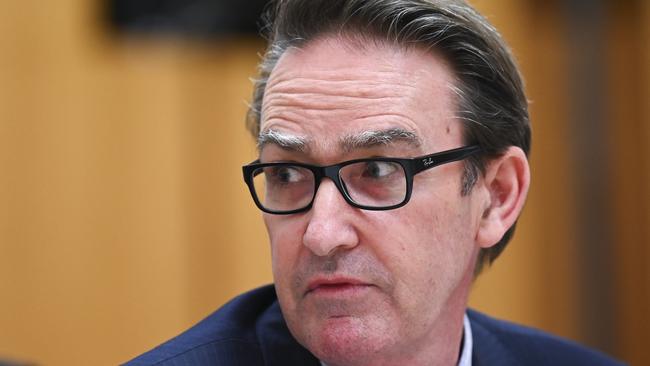Treasury appoints stage 3 tax cuts critic Miranda Stewart
University of Melbourne law professor Miranda Stewart, a staunch opponent of the Coalition-era stage 3 tax cuts, will advise Labor on tax policy.

University of Melbourne law professor Miranda Stewart – a staunch opponent of the Coalition-era stage three tax cuts – will advise the government on taxation policy after being embedded in Treasury’s revenue group by Steven Kennedy.
The Australian can reveal Professor Stewart joined Treasury’s revenue division last Monday to help devise government taxation policy despite previously claiming the “cruel and unfair stage three tax cuts will only worsen inequality”.
The Melbourne Law School tax director has penned sharp critiques of stage three tax cuts and signed an open letter to Anthony Albanese, alongside 100 financial experts, urging the government to reconsider the size, shape and timing of the tax cuts.
Professor Stewart, who attended The Australia Institute’s Revenue Summit last year, previously said “the removal of the 37 per cent bracket delivers a permanent tax cut to top income earners, mostly men”.

“This makes the structural fiscal deficit worse, with a substantial fiscal cost without efficiency and equity benefits,” Professor Stewart told the SMH.
Professor Stewart’s appointment as a Treasury visiting fellow comes amid agitation among Labor backbenchers and unions to trim or cut stage three tax cuts ahead of their commencement on July 1 next year.
The Australian understands Professor Stewart has been employed on an APS SES Band 1 level, which has a salary range of between $219,472 to $255,076. Professor Stewart commenced as a Treasury visiting fellow on November 20 and will finish her tenure on April 30 next year, ahead of the May 14 budget.
Under stage-three tax cuts, the 37 per cent tax bracket would be abolished and shifted towards a flat rate of 30 per cent for Australians earning between $45,000 and $200,000. The top 45 per cent bracket would start from $200,000, meaning about 94 per cent of workers would pay no more than a marginal rate of 30c in the dollar.
A Crikey piece, written by Professor Stewart and four academics published the day before Jim Chalmers’ second budget in May, carried the headline “the cruel and unfair stage three tax cuts will only worsen inequality”.
“The tax cuts will reduce government revenue by about $184 billion in the first eight years — that means less money to spend on alleviating poverty. The stage three tax cuts should not go ahead as currently designed,” Professor Stewart and her co-authors wrote.
“The government should at least return the 37% tax rate at a suitable threshold, which the Grattan Institute estimates would save $8 billion a year. Australia needs a broader discussion about restoring the progressive rate structure and base of the income tax to capture more tax from capital and wealth.”
In an Australian Financial Review piece published in August last year, Professor Stewart argued the tax cuts would “add to inflationary pressures and permanently flatten the rate structure, while leaving the problem of bracket creep unresolved”.
“The government should replace the stage three cut with a calibrated increase in tax thresholds to benefit the middle. Lifting the threshold for the 32 and 37 per cent tax rates, protecting that middle rate, would better target the tax cut to median and average wage earners and protect one of the most important features of the income tax: its progressivity,” Professor Stewart wrote.
Professor Stewart, a respected academic with more than 25 years research, practical and leadership experience in tax law and policy in academia, government and the private sector, will work alongside Treasury officials on tax policy and law design projects and contribute to the development of policy and law expertise in taxation.
In a July speech last year following the election, Dr Kennedy announced that Treasury was “establishing a fellows’ program for academics to spend their sabbatical working with Treasury analysts”. Despite reservations of some officials about embedding academics inside the department, the Treasury secretary in his speech said that “there is more we can do to encourage collaboration between academia and the public service”.
After the Prime Minister in Question Time recommitted Labor to the tax cuts, a spokesman for Dr Chalmers on Wednesday told The Australian: “the government’s position on the stage three tax cuts hasn’t changed”.
Opposition treasury spokesman Angus Taylor said the government must “immediately clarify the cost and the purpose of these consultancies”.
“At a time when families are having to tighten their belts, the government needs to treat taxpayer’s money with the same care. It is clear Labor want to break another election promise on tax. The government needs to come clean to the Australian public about their plans for the stage three tax cuts,” Mr Taylor said.
In his 2022 speech, titled The Australian Public Service and Academia, Dr Kennedy said “movements of people between the public service and academia can further support collaboration and development of good policy”.




To join the conversation, please log in. Don't have an account? Register
Join the conversation, you are commenting as Logout